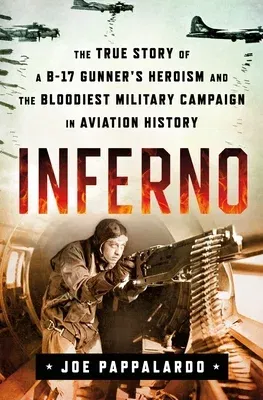Joe Pappalardo's Inferno tells the true story of the men who flew
the deadliest missions of World War II, and an unlikely hero who
received the Medal of Honor in the midst of the bloodiest military
campaign in aviation history.
There's no higher accolade in the U.S. military than the Medal of Honor,
and 472 people received it for their action during World War II. But
only one was demoted right after: Maynard Harrison Smith.
Smith is one of the most unlikely heroes of the war, where he served in
B-17s during the early days of the bombing of France and Germany from
England. From his juvenile delinquent past in Michigan, through the war
and during the decades after, Smith's life seemed to be a series of very
public missteps. The other airmen took to calling the 5-foot, 5-inch
airman "Snuffy" after an unappealing movie character.
This is also the man who, on a tragically mishandled mission over France
on May 1, 1943, single-handedly saved the crewmen in his stricken B-17.
With every other gunner injured or bailed out, Smith stood alone in the
fuselage of a shattered, nameless bomber and fought fires, treated
wounded crew and fought off fighters. His ordeal is part of a forgotten
mission that aircrews came to call the May Day Massacre. The skies over
Europe in 1943 were a charnel house for U.S. pilots, who were being led
by tacticians surprised by the brutal effectiveness of German defenses.
By May 1943 the combat losses among bomb crews were a staggering 40 to
50 percent.
The backdrop of Smith's story intersects with some of the luminaries of
aviation history, including Curtis Lemay, Ira Eaker and "Hap" Arnold,
during critical times of their storied careers. Inferno also examines
Smith's life in a new, comprehensive light, through the use of exclusive
interviews of those who knew him (including fellow MOH recipients and
family) as well as public and archival records. This is both a thrilling
and horrifying story of the air war over Europe during WWII and a
fascinating look at one of America's forgotten heroes.

